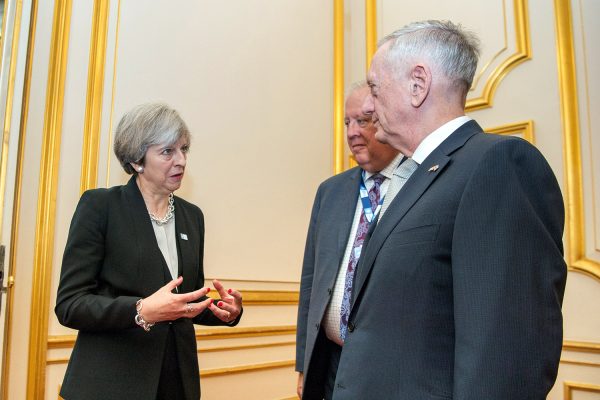
Divisions over Britain’s exit from the European Union are once again dividing Conservatives, leaving Prime Minister Theresa May with no good options.
What has happened?
- Lawmakers keen on leaving the EU have accused Philip Hammond — the sober-minded chancellor who understands that Brexit isn’t the Promised Land — of betrayal for telling the World Economic Forum in Davos, Switzerland that the United Kingdom will seek only “very modest” changes in its relationship with the EU.
- Both David Davis, the Brexit secretary, and Liam Fox, the trade minister, have come out against remaining in the EU customs union. They previously entertained the possibility of Turkey-style association, which, while short of a Norway- or Switzerland-style trade deal, would at least prevent tariffs from being levied on British exports.
- Jacob Rees-Mogg, a reactionary member of Parliament, has accused civil servants of “fiddling the figures” and exaggerating the economic impact of Brexit, earning him a rebuke from Amber Rudd, the home secretary and a leader of the center-right wing of the Conservative Party.
Leaderless
Matthew d’Ancona, a liberal columnist, urges May to put an end to this. Set out an explicit and unapologetic strategy for Brexit, he dares her, and instruct the Conservatives to either back or sack you.
Such a bold move is unlikely from a prime minister who doesn’t even have the full support or her cabinet, let alone her party.
Or unleadable?
In fairness to May, it is doubtful another leader could do better.
The BBC’s John Pienaar argues that, on the issue of Brexit, the Conservatives have become unleadable:
Any detailed and decisive shift in policy away from, or close to, the status quo could easily provoke a fatal confrontation with either Brexiteers or remainers and conceivably with both.
This has been May’s challenge from the start: she must balance factions supportive and skeptical of Brexit. If she is seen as too close to one side, the other will rebel.
The trouble is, a compromise in this case — leaving the EU but maintaining on close terms with the bloc — could satisfy neither side.
